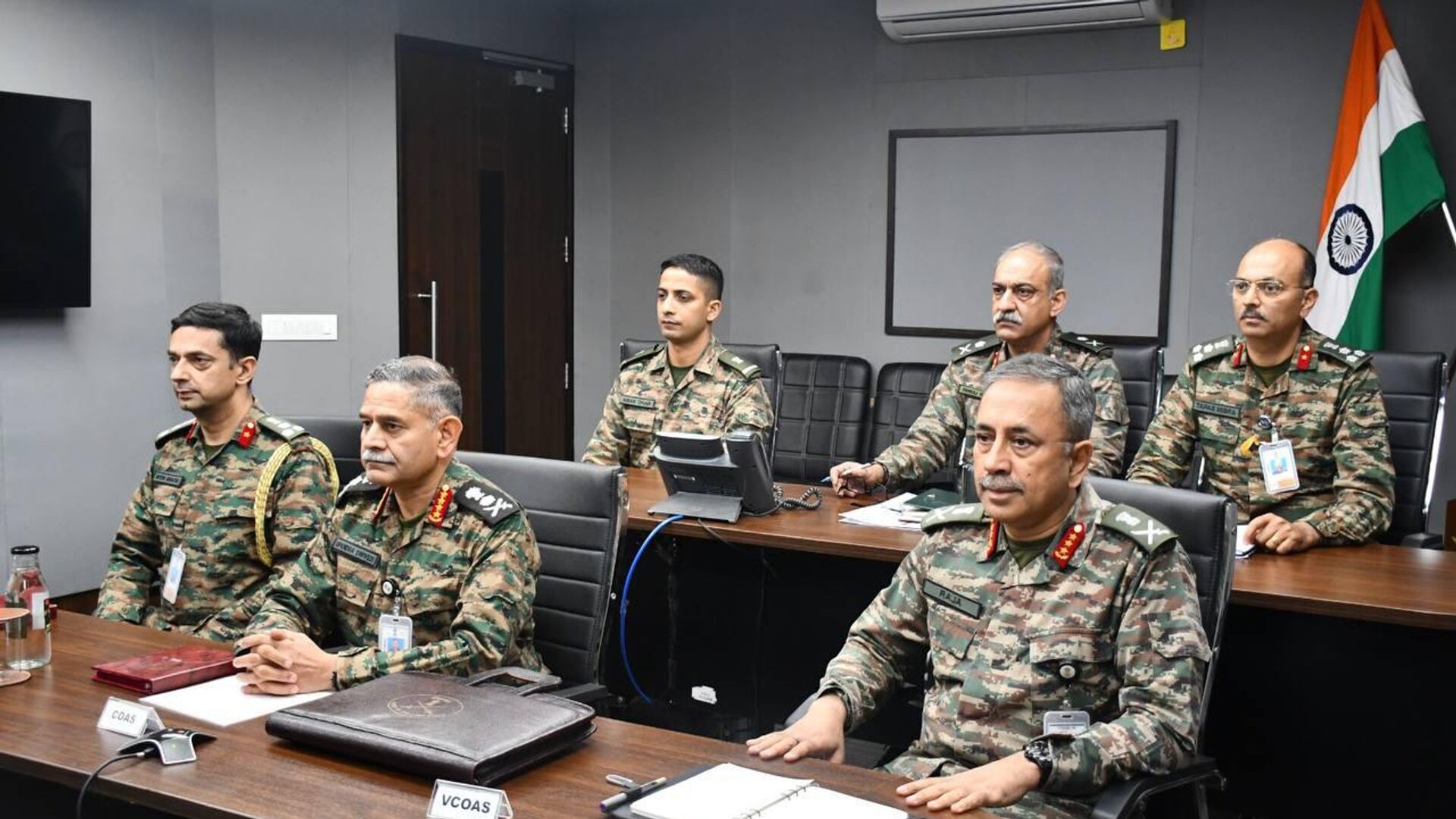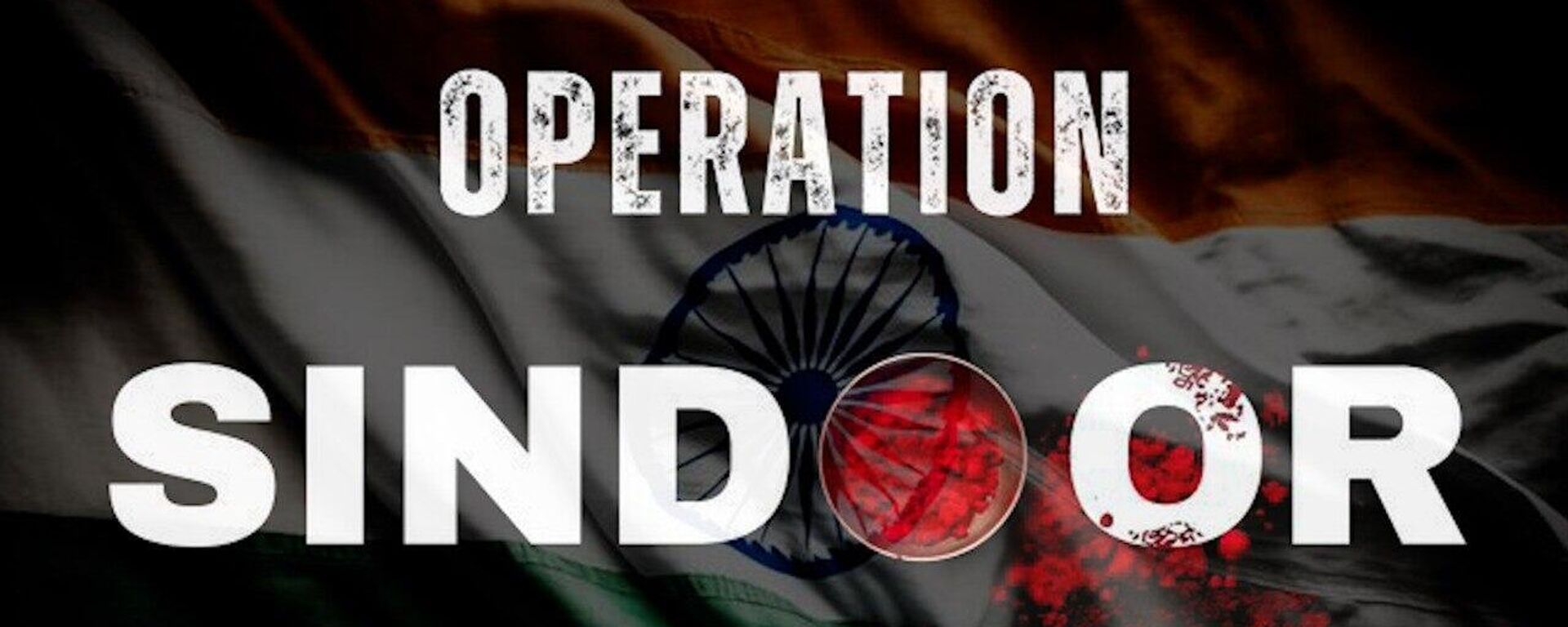https://sputniknews.in/20250516/how-operation-sindoor-marked-a-shift-in-indias-counter-terror-strategy-9147772.html
How Operation Sindoor Marked a Shift in India's Counter-Terror Strategy
How Operation Sindoor Marked a Shift in India's Counter-Terror Strategy
Sputnik India
Operation Sindoor is India's clearest articulation of a zero-tolerance towards terrorism, with Prime Minister Narendra Modi himself underlining that it will... 16.05.2025, Sputnik India
2025-05-16T20:23+0530
2025-05-16T20:23+0530
2025-05-16T20:23+0530
sputnik opinion
terrorism
narendra modi
india
pakistan
new delhi
indian air force (iaf)
operation sindoor
counter-terrorism
pahalgam terror attack
https://cdn1.img.sputniknews.in/img/07e9/05/0b/9105700_0:66:1281:786_1920x0_80_0_0_c73f543c7b508d9ff0adda7b80636e94.jpg
India's counter-terrorism strategy, particularly targeting the terror infrastructure inside Pakistan, has become part of the country's strategic doctrine, experts have told Sputnik India.Op Sindoor builds on India's surgical strikes conducted in the past against Pakistan-based terrorists, and it can be said that "decisive Indian retaliation will be the first pillar" of India's counter-terror doctrine, stated Raj Kumar Sharma, a Senior Research Fellow at the New Delhi-based strategic affairs think tank NatStrat.The dastardly terror attack in Pahalgam, Kashmir, led to India resolving that the menace of terror cannot be tolerated any longer and that not only the terrorists but their perpetrators too had to be taught a lesson, underlined retired Colonel Rajeev Agarwal, a Senior Research Consultant at the Chintan Research Foundation.Operation Sindoor is not only an act to avenge the Pahalgam terror attack, but a strong statement of political intent, he added.PM Modi's declaration during his address to the nation on 12th May that "Pakistani nuclear weapon blackmail will no longer be a restraining factor is bold and intimidating," not only for Pakistan but the international community too, which has for so long maintained a rather ambiguous stand on Pakistan’s state-sponsored support to terror, the Army veteran highlighted.Interestingly, Modi was the first to announce that any terrorist act against India will now be considered as an "act of war".What India calls the zero tolerance towards terror has now been articulated through a dynamic, escalatory retaliation strategy, retired Major General BK Sharma, the Director General of the United Service Institution of India (USI), stressed.It reflects India's unwavering commitment to dictate the timing, scale, and nature of its response, ensuring that terrorists and their sponsors face immediate and overwhelming consequences, noted Priyadarshini Baruah, a Research Associate at the Indian Air Force-allied Centre for Air Power Studies.Operation Sindoor underscores India's technological prowess, military precision, and strategic clarity, sending a clear message: any attack on Indian soil will be met with relentless force, safeguarding the nation and honouring the sacrifices of its citizens, and the impact of the massage will not just be limited to Pakistan but the entire South Asian neighbourhood, she explained.Besides, Operation Sindoor could be an actualisation of the Shishupala Doctrine, drawing inspiration from the Mahabharata's story of Shishupala and Lord Krishna, the scholar reckoned.In the epic, Lord Krishna tolerates Shishupala's 100 insults before decisively slaying him with the Sudarshan Chakra (celestial weapon), symbolising patience up to a defined limit, followed by overwhelming action, she elaborated.
https://sputniknews.in/20250516/western-medias-bias-against-indias-counterterrorism-op-in-pakistan-exposed-9141953.html
india
pakistan
new delhi
Sputnik India
feedback.hindi@sputniknews.com
+74956456601
MIA „Rossiya Segodnya“
2025
Pawan Atri
https://cdn1.img.sputniknews.in/img/07e6/0c/13/139630_147:0:831:684_100x100_80_0_0_8fa2b25903e7787fe6a2698552c167df.png
Pawan Atri
https://cdn1.img.sputniknews.in/img/07e6/0c/13/139630_147:0:831:684_100x100_80_0_0_8fa2b25903e7787fe6a2698552c167df.png
News
en_IN
Sputnik India
feedback.hindi@sputniknews.com
+74956456601
MIA „Rossiya Segodnya“
Sputnik India
feedback.hindi@sputniknews.com
+74956456601
MIA „Rossiya Segodnya“
Pawan Atri
https://cdn1.img.sputniknews.in/img/07e6/0c/13/139630_147:0:831:684_100x100_80_0_0_8fa2b25903e7787fe6a2698552c167df.png
terrorism, narendra modi, india, pakistan, new delhi, indian air force (iaf), operation sindoor, counter-terrorism, pahalgam terror attack , cross-border terrorism, terror outfits, terrorist attack, indian army
terrorism, narendra modi, india, pakistan, new delhi, indian air force (iaf), operation sindoor, counter-terrorism, pahalgam terror attack , cross-border terrorism, terror outfits, terrorist attack, indian army
How Operation Sindoor Marked a Shift in India's Counter-Terror Strategy
Operation Sindoor is India's clearest articulation of a zero-tolerance towards terrorism, with Prime Minister Narendra Modi himself underlining that it will form the bedrock of the nation's approach to safeguard its national security.
India's counter-terrorism strategy, particularly targeting the terror infrastructure inside Pakistan, has become part of the country's strategic doctrine, experts have told Sputnik India.
Op Sindoor builds on India's surgical strikes
conducted in the past against Pakistan-based terrorists, and it can be said that
"decisive Indian retaliation will be the first pillar" of India's counter-terror doctrine, stated Raj Kumar Sharma, a Senior Research Fellow at the New Delhi-based strategic affairs think tank NatStrat.
"It is based on India's growing military confidence and abilities to precisely target terror infrastructure in Pakistan. The world now knows that India will act against Pakistan-sponsored terrorism. It is also in line with international law as Article 51 of the UN Charter gives India the right to self-defence," the think-tanker told Sputnik India.
The dastardly terror attack in Pahalgam, Kashmir, led to India
resolving that the menace of terror cannot be tolerated any longer and that not only the terrorists but their perpetrators too had to be taught a lesson, underlined retired
Colonel Rajeev Agarwal, a Senior Research Consultant at the
Chintan Research Foundation.
Operation Sindoor is not only an act to avenge the Pahalgam terror attack, but a strong statement of political intent, he added.
"It was also a demonstration of India's military prowess and professionalism. Also, the close synergy between the three armed forces was clearly evident. It was also a great demonstration of the massive gap between the military capability of India and Pakistan, where India could strike at will deep inside Pakistan, but Indian Air Defences intercepted all that Pakistan fired," Agarwal said in an interview with Sputnik India.
PM Modi's declaration during his address to the nation on 12th May that "Pakistani nuclear weapon blackmail will no longer be a restraining factor is bold and intimidating," not only for Pakistan but the international community too, which has for so long maintained a rather ambiguous stand on Pakistan’s
state-sponsored support to terror, the Army veteran highlighted.
Interestingly, Modi was the first to announce that any terrorist act against India will now be considered as an "act of war".
"Operation Sindoor is now India's established policy in the fight against terrorism, marking a decisive shift in India's strategic approach," PM Modi declared.
What India calls the zero tolerance towards terror has now been articulated through a dynamic, escalatory retaliation strategy, retired Major General BK Sharma, the Director General of the United Service Institution of India (USI), stressed.
"Moreover, Operation Sindoor has very clearly brought out that India is not going to be coerced by Pakistan's nuclear saber-rattling, and that is why India went up the escalation ladder despite Pakistan's atomic rhetoric when the Indian Air Force targeted their air bases in their heartland, including in Islamabad, Rawalpindi and Karachi," the military commentator underscored.
It reflects India's unwavering commitment to dictate the timing, scale, and nature of its response, ensuring that terrorists and their sponsors face
immediate and overwhelming consequences, noted
Priyadarshini Baruah, a Research Associate at the
Indian Air Force-allied Centre for Air Power Studies.
Operation Sindoor underscores India's technological prowess, military precision, and strategic clarity, sending a clear message: any attack on Indian soil will be met with relentless force, safeguarding the nation and honouring the sacrifices of its citizens, and the impact of the massage will not just be limited to Pakistan but the entire South Asian neighbourhood, she explained.
"As addressed by Defence Minister Rajnath Singh, 'India's fight against terrorism is now a part of the national defence doctrine; we will root out this hybrid & proxy warfare.' This new doctrine, which I call 'retaliation on India's terms,' is indeed the cornerstone of this revitalised strategy," Baruah pointed out.
Besides, Operation Sindoor could be an actualisation of the Shishupala Doctrine, drawing inspiration from the Mahabharata's story of Shishupala and Lord Krishna, the scholar reckoned.
In the epic,
Lord Krishna tolerates Shishupala's 100 insults before decisively slaying him with the
Sudarshan Chakra (celestial weapon),
symbolising patience up to a defined limit, followed by overwhelming action, she elaborated.
"Similarly, the doctrine suggests India should set clear red lines for Pakistan's provocations, particularly its state-sponsored terrorism, and respond with calibrated, decisive force once those limits are crossed," Baruah concluded.



